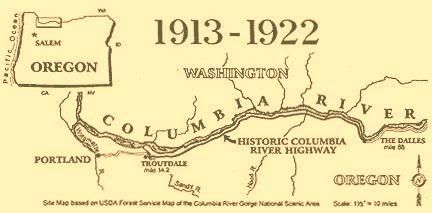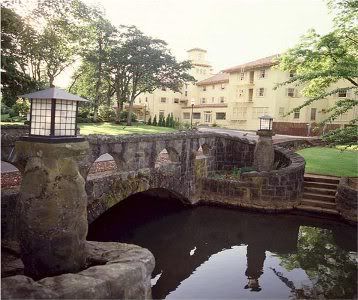(6 pm. – promoted by ek hornbeck)
The last time my mother took me out to her folks’ former property in the Yakima valley was when I was around 21 years old – in 1979, a hot, hot summer day. The aging, paint-peeled-so-badly-no-memory-of-color-remained clapboard farmhouse was still there between Brownstown and the White Swan Indian Agency (and may be standing today as far as I know). It was built around 1905, the year my grandparents, Nellie and James, were married. An old straight-up style house, tented 70 degree roof, very spare and plain Victorian, narrow high window casements, tall ceilings, small rooms. Three small bedrooms and a shanty add-on bathroom.
Wandering oversea dreamer,
Hunting and hoarse,
Oh daughter and mother,
Oh daughter of ashes and mother of blood,…
**************
(crossposted at Dailykos)
No indoor plumbing when my mother was a child. Seven children were raised there, through Roosevelt, through Wilson, through the Great War, and into the Roaring Twenties. The family occupation ended a handful of years after the death of my grandfather at age 43 in 1925 and the onset of the Crash in 1929. Thank you, Mr. Hoover. The Depression set in, another family farm lost. The weave frayed, the weft weakened.
When Grandfather died, Grandmother was 36 years old, with seven living children, and at least two stillbirths, culled from twenty years of marriage. My grandfather, a tall and slender black-haired, black-eyed Welsh/Black Irishman, had been an invalid, mostly housebound and bedridden for much of his final three years. My grandmother plowed the fields and worked the horses alongside hired seasonal hands.
Struggle, Oh anvils, and help her.
Weave with your wool.
Oh winds and skies.
Let your iron and copper help,
Oh dirt of the old dark earth.
Grandfather was often in excruciating pain due from what was known as Bright’s disease – generally referred to now as acute nephritis, or chronic kidney failure. Mother used to speak in awe of her father, who wore woolen underwear year-round, even in the extreme heat of the Yakima valley summer so that he could sweat. The practice was an attempt to force the body to get rid of excess water and wastes without overtaxing the kidneys. It must have been brutal and it was ultimately unsuccessful.
He seemed to enjoy a brief respite that spring of ’26. Nellie and James embarked on a grand trip, first eastward up the Yakima valley to the Kennewick, Pasco area and then down the Washington side of the Columbia River, likely crossing over at The Dalles to travel down to Portland on the new Columbia River Gorge Highway , constructed by Sam Hill. One goal was to touch the Pacific Ocean, a sight my grandmother had yet to see.
They stopped at a luxurious roadside inn, the Columbia River Gorge Hotel just west of Hood River, Oregon and right on the southern bluffs of the river. An imperial night, perhaps a second honeymoon trip, maybe the first trip together away from home, given the responsibilities of working a farm and child-rearing and family tending. And latter-day invalid care. My mother was nine years old that year and could not recall another time her folks had both been gone. What a marvelous extravagance for a man and a woman who had traveled to the Yakima valley as children in separate covered wagon trains from Missouri, and Missouri by way of Louisiana, respectively. People who were in reality and in spirit just simple country horse and crop farmers.
With seven children, it can be suggested that there was still sufficient vigor in the more private aspects of my grandparents’ life together.
Overnight, sometime before dawn of the next day, my grandfather died in bed, victim of a massive brain hemorrhage at 43 years of age. My grandmother was left with transporting his young/old man’s body the rest of the way down the Gorge highway to Portland to return home by train.
I’ve twice booked rooms at the Columbia Gorge Hotel, and both times cancelled. A flame still flickers there across the years, an echo from extinguished spirits.
|
*Just over five months beyond my grandfather’s death, Nellie was out plowing the field farthest from the house with a hired hand. She was on the buckboard guiding the reins of a wagon dragging plowing tines behind a pair of Morgans when she fainted off the platform. The hired man unhitched a horse, left her covered with a horse blanket in the field, and raced back to the house to find my greatgrandfather. They transported my grandmother back to the house; she miscarried and in the process hemorrhaged significantly.
My great-grandmother later wrapped the miscarried fetus in cotton and my greatgrandfather made a small wooden box. With my mother in tow, they rode out to the far field and from the vertex of the split-rail fence post at the corner of the property, he paced out diagonally fifty steps. They buried the small box, together shoveling dirt, together saying a prayer.
Child of the hair let down, and tears,
Child of the cross in the south
And the star in the north,…
It took a week in bed, but by the second week she was back at plowing. These were her fields, her horses.My grandmother was never told where the grave was, she never asked, and maybe it’s simply spooky family lore that she never worked that particular section of field again.
That hot, hot summer before my final year of college, we drove up the long straight road from the house to the end corner of the property, which I recall was reduced to around 25 acres. Lateral A? Lateral B? I don’t remember. Most of the fields were planted in asparagus, a few in corn and alfalfa. When I was much younger, sugar beets were harvested for the U&I sugar factory near Toppenish. By the late seventies, it was no longer cost effective to extract sugar from the beets, as imported sugar cane sugar drove prices down. Orchards dotted adjacent farms here and there, with smudge pots and windmills positioned to call away the frost on cold nights.
At the far corner of the land, there was a dirt road that ran along the property line, an old easement that had never been paved. We pulled into the dusty path and got out of the car. As we approached the corner fence post, still a split rail, now weathered and fading and lacking much of any barbed wire or braces to maintain integrity, Mother pointed at a cow’s skull, bleached white, vacant, pockmarked.
“There was a cow skull there when I was young. It surely can’t be the same one.” She wasn’t asking a question.
A spirit still flickers there across the years, an echo from an extinguished flame.
Wandering oversea singer,
Singing of ashes and blood,
Child of the scars of fire,
Make us one new dream, us who forget.
Out of the storm let us have one star.
(excerpts out of sequence from Prayers After World War One, Carl Sandburg)
*UPDATE: from my original – changed from “three months” to “five months” after I went back to compare dates from an old diary entry I wrote in a blank book when I was a kid, based on stories my mother told me – my youngest daughter caught this. thanks for your patience.

|



7 comments
Skip to comment form
thanks exme.
as usual. History and art that is alive in the stories of real people, real cionnections. It makes it so close you can touch it. Grandparents lives are only separated by one generation and yet the world they inhabited was so different. Or do we just think so?
Mine came from Iowa to California, in 1914 to farm what is now the San Fernando Valley. When you see what their ranch is now (the airport in Burbank) it is mind boggling. I vaguely remember feeding the chickens as a toddler.
As you write of my state Oregon, it’s a bonus as the vivid present gets linked to the past which surrounds me here.
Author
hope you enjoy.
Shaharazade writes above…
“Grandparents lives are only separated by one generation and yet the world they inhabited was so different. Or do we just think so?”
I don’t know.
Our modern situational awareness is too often weakened by our inability to examine the past and synthesize the whole.
good to see you and thank you for sharing more of your family.
you’re a helluva writer.